
Workers and activists have marked May Day with rallies to demand their governments address labour issues.
International Workers’ Day is a public holiday in many countries, though activities are restricted in some places, sometimes leading to confrontations.
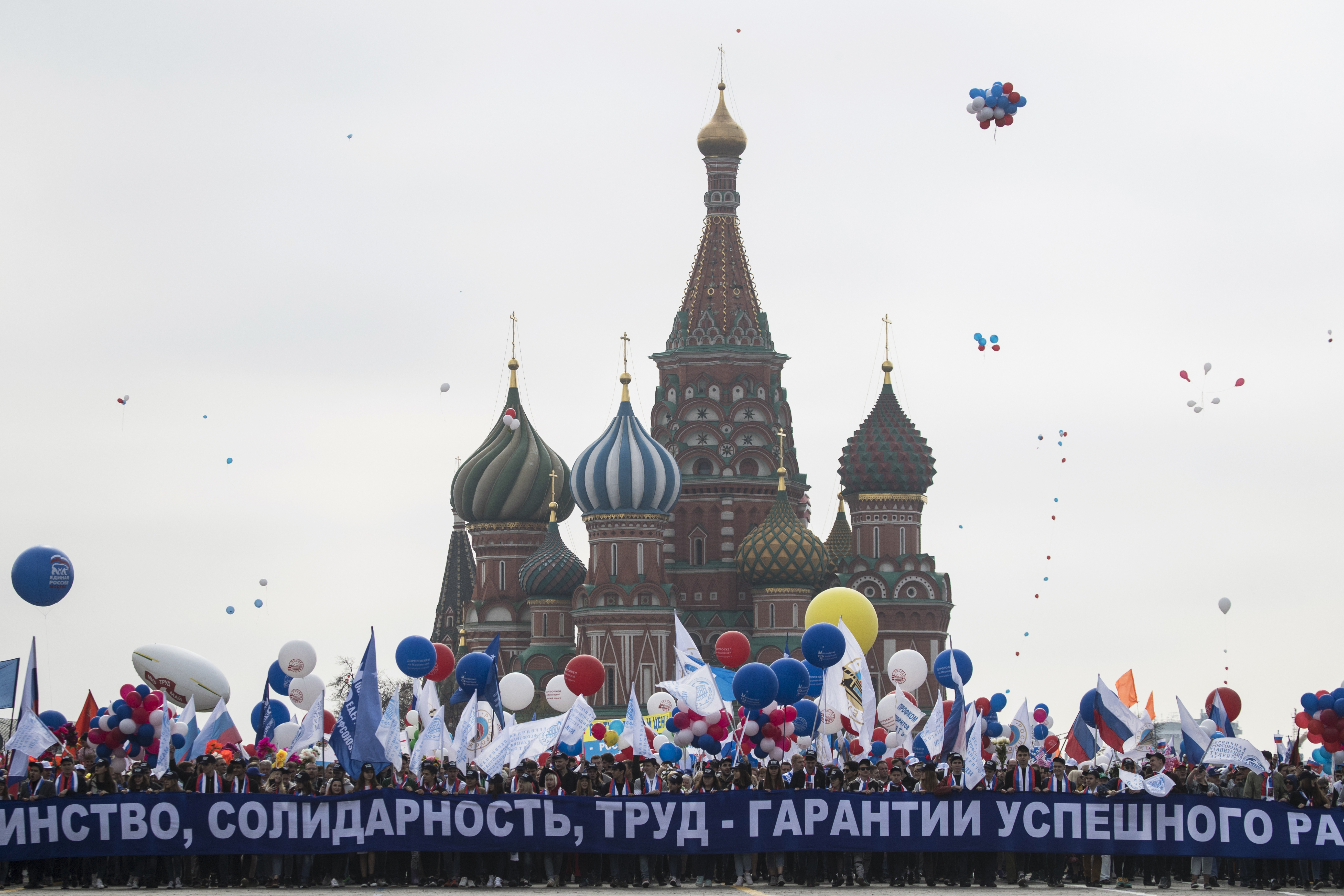
Here is a look at some of the events around the world:
Turkey
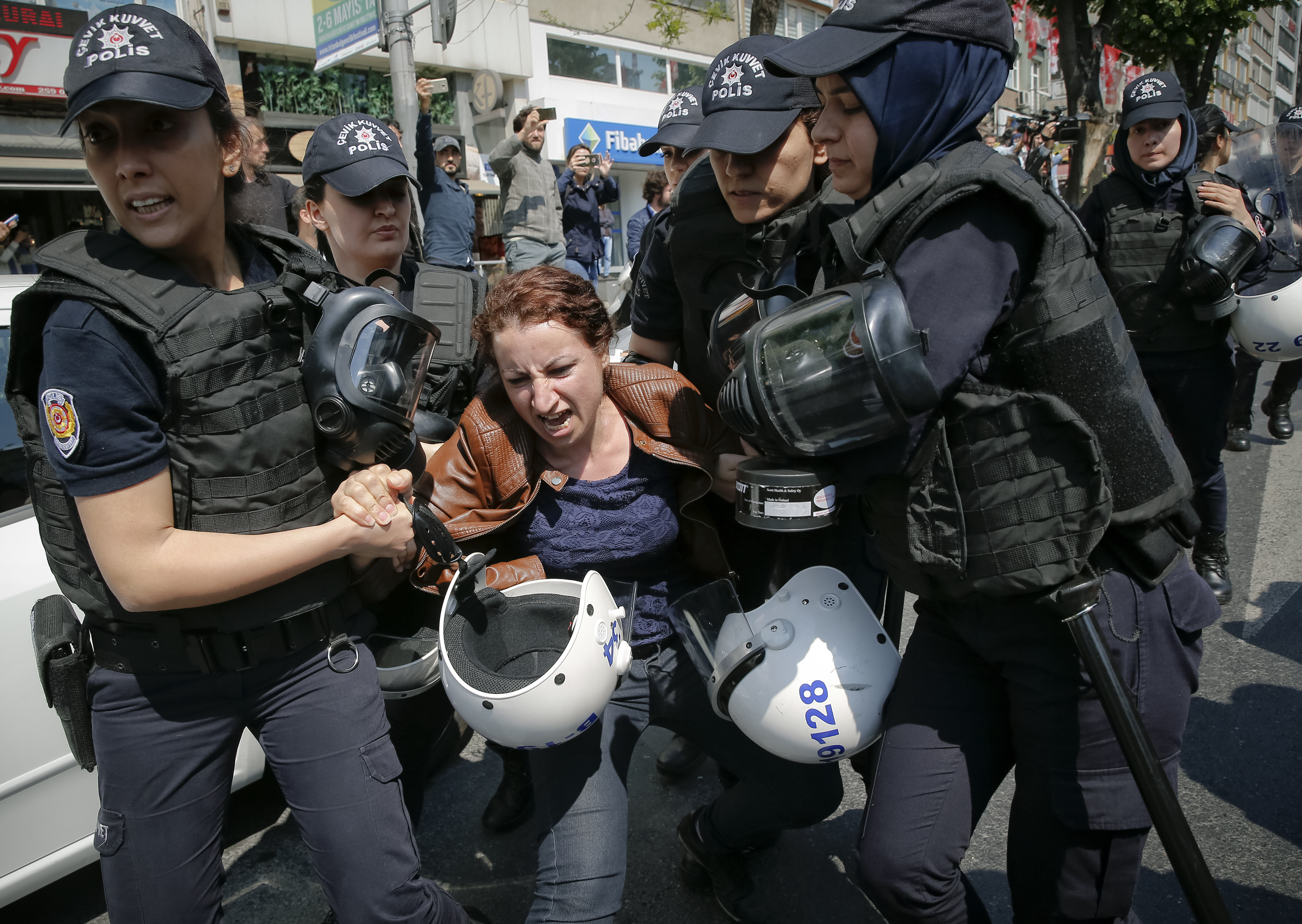
Police in Istanbul detained more than a dozen demonstrators who tried to march towards Istanbul’s symbolic main square in defiance of a ban.
Turkey declared Taksim Square off-limits to May Day celebrations citing security concerns. Roads leading to the square were blocked and police allowed only small groups of labour union representatives to lay wreaths at a monument there.
Still, a group of some 25 people chanting “Taksim cannot be off limits on May 1” tried to push their way into the square but were rounded up by riot police.
Taksim holds a symbolic value for Turkey’s labour movement. In 1977, 34 people were killed there during a May Day event when shots were fired into the crowd from a nearby building.
Philippines
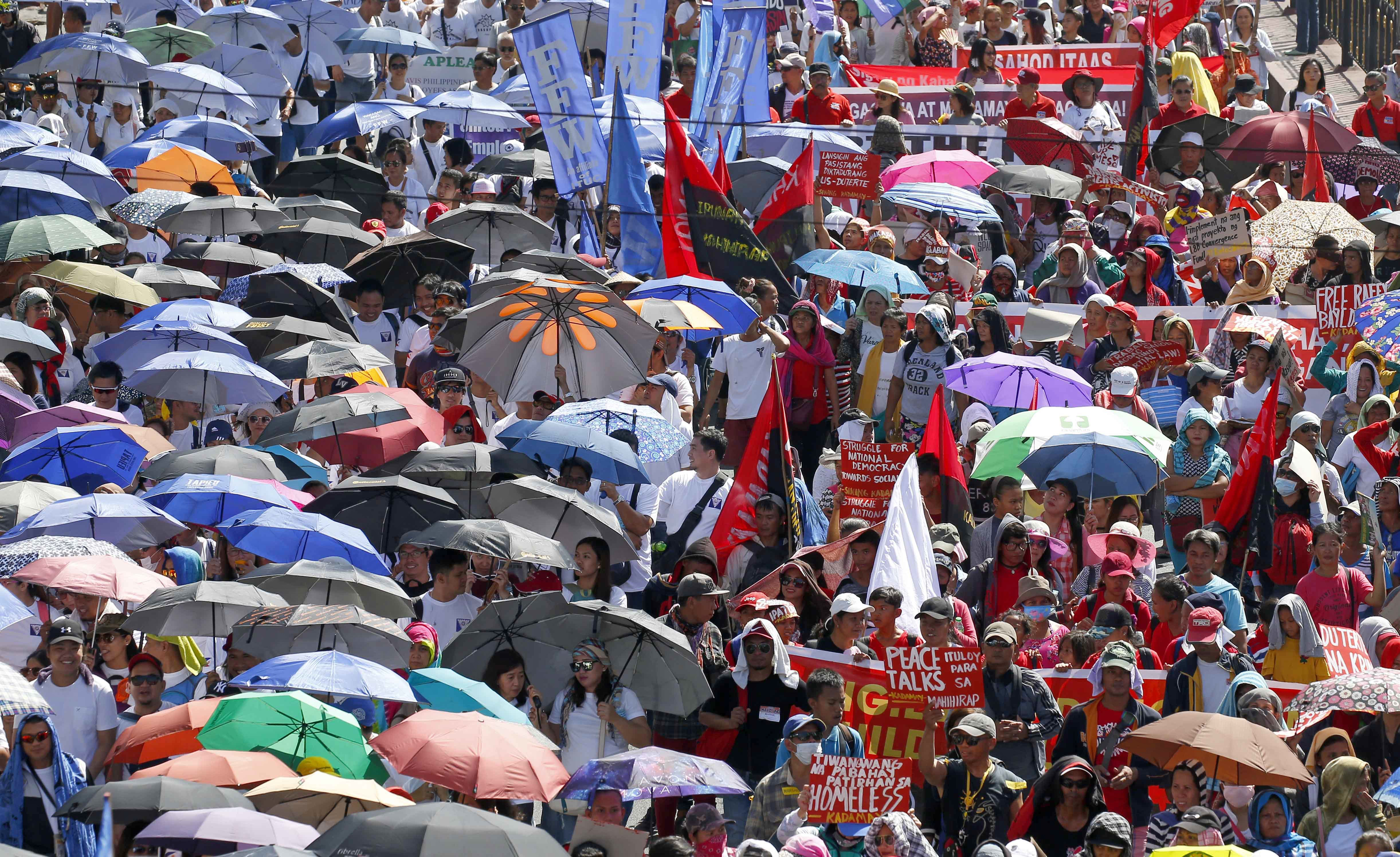
About 5,000 people from various groups rallied near the presidential palace in Manila.
They were protesting over the failure of Philippine President Rodrigo Duterte to fulfil a major campaign promise to end contractualisation, the widespread practice of short-term employment.
The protesters also demanded that the government address issues including low wages, unemployment and trade union repression.
South Korea
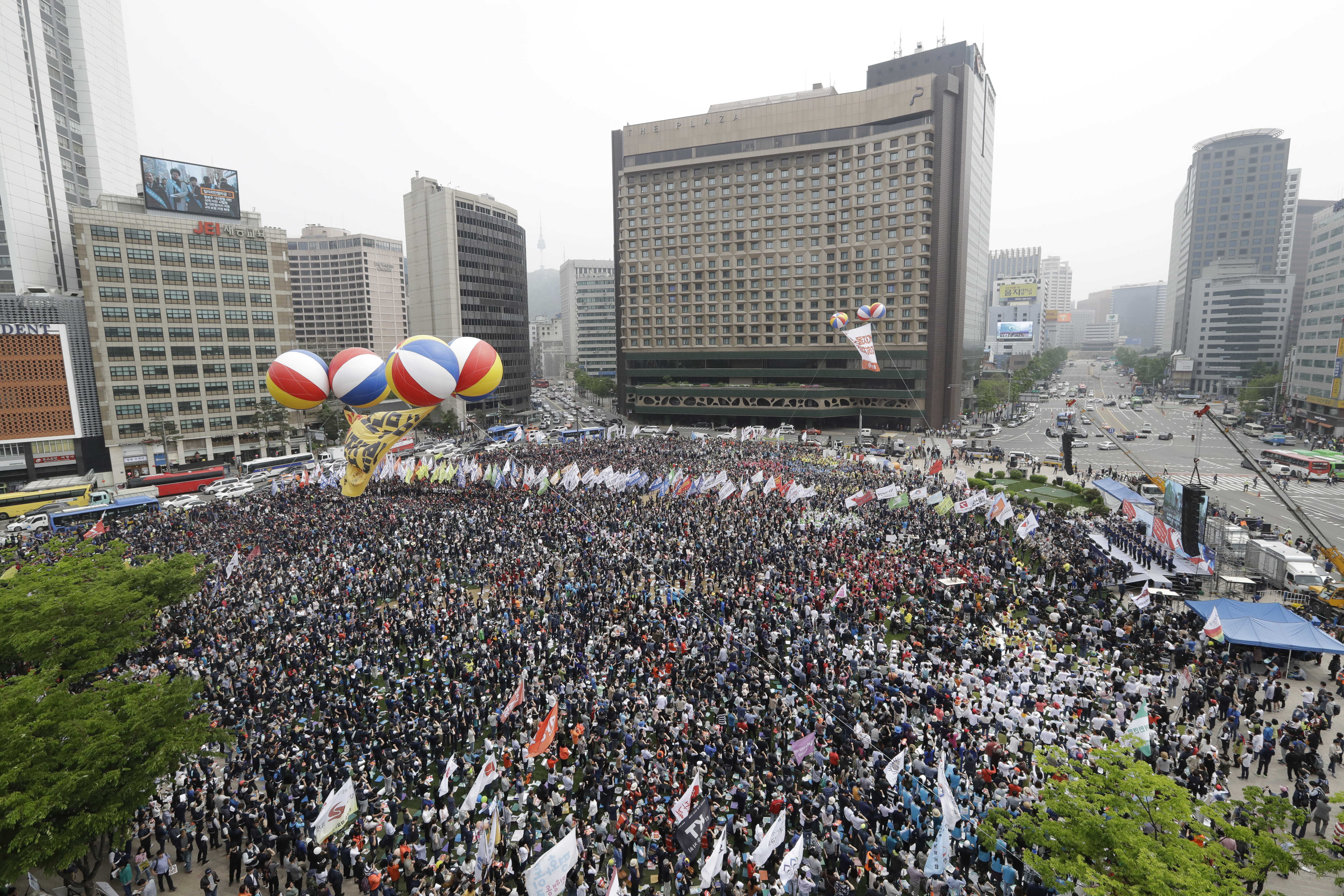
Thousands of labour union members rallied in central Seoul for a higher minimum wage and other demands.
They chanted slogans urging the government to implement a 10,000 won (£6.82) minimum wage and convert all non-regular employees to regular workers with equal pay and treatment.
The rally was organised by the Korean Confederation of Trade Unions. The police estimated the crowd at 10,000 people.
The union members also demanded that the government scrap the restructuring of the shipbuilding and car industries, and reform the huge conglomerates that dominate the South Korean economy.
Indonesia
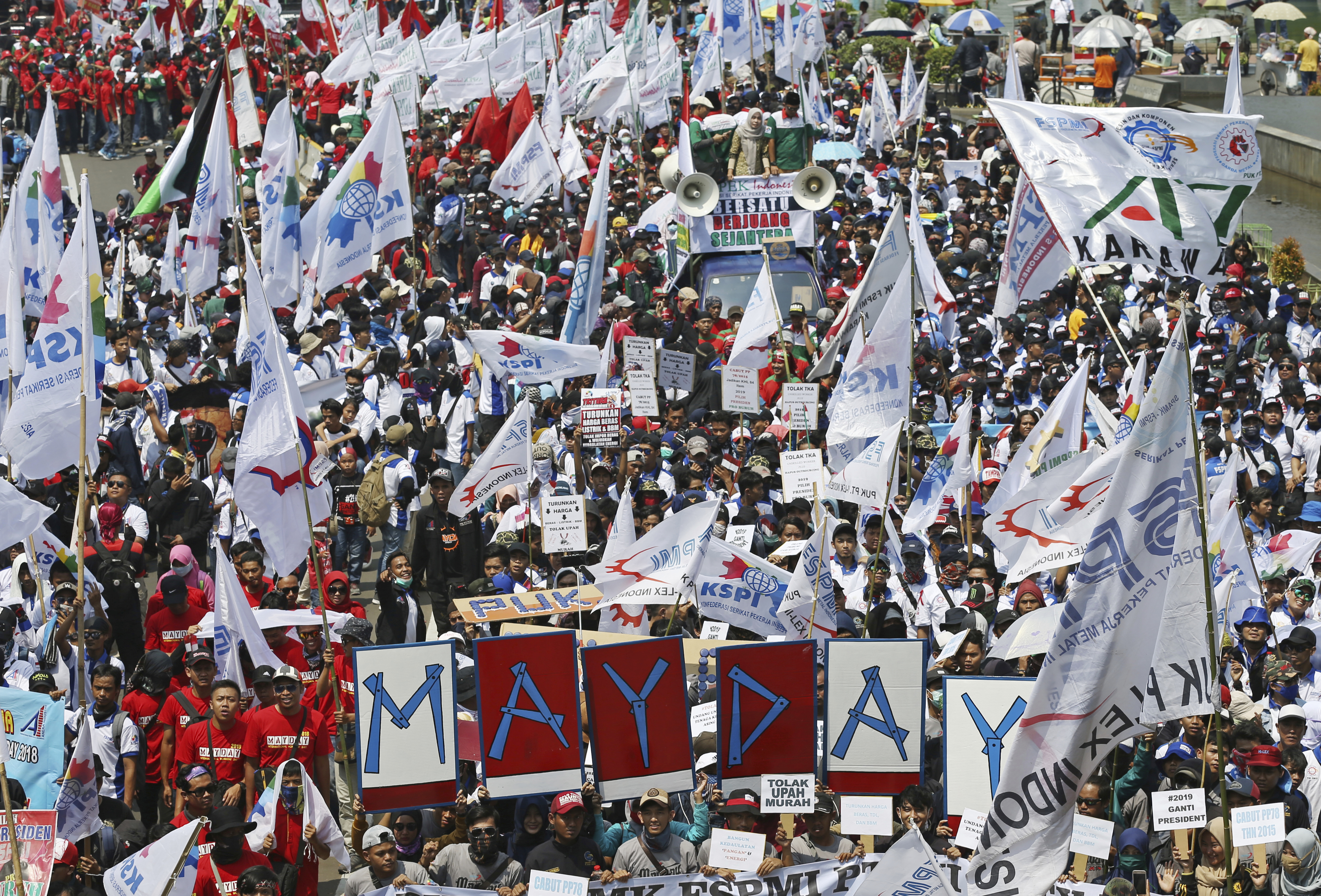
About 10,000 workers from various labour groups rallied near the presidential palace in Jakarta to voice their demands.
Most of the workers came from Jakarta and nearby suburbs, but some travelled from West Java and Surabaya.
The protesters urged the government to avoid outsourcing, and to raise their wages. They also asked the government to stop foreign labourers from working in Indonesia, saying it decreases employment opportunities for local workers.
Cambodia
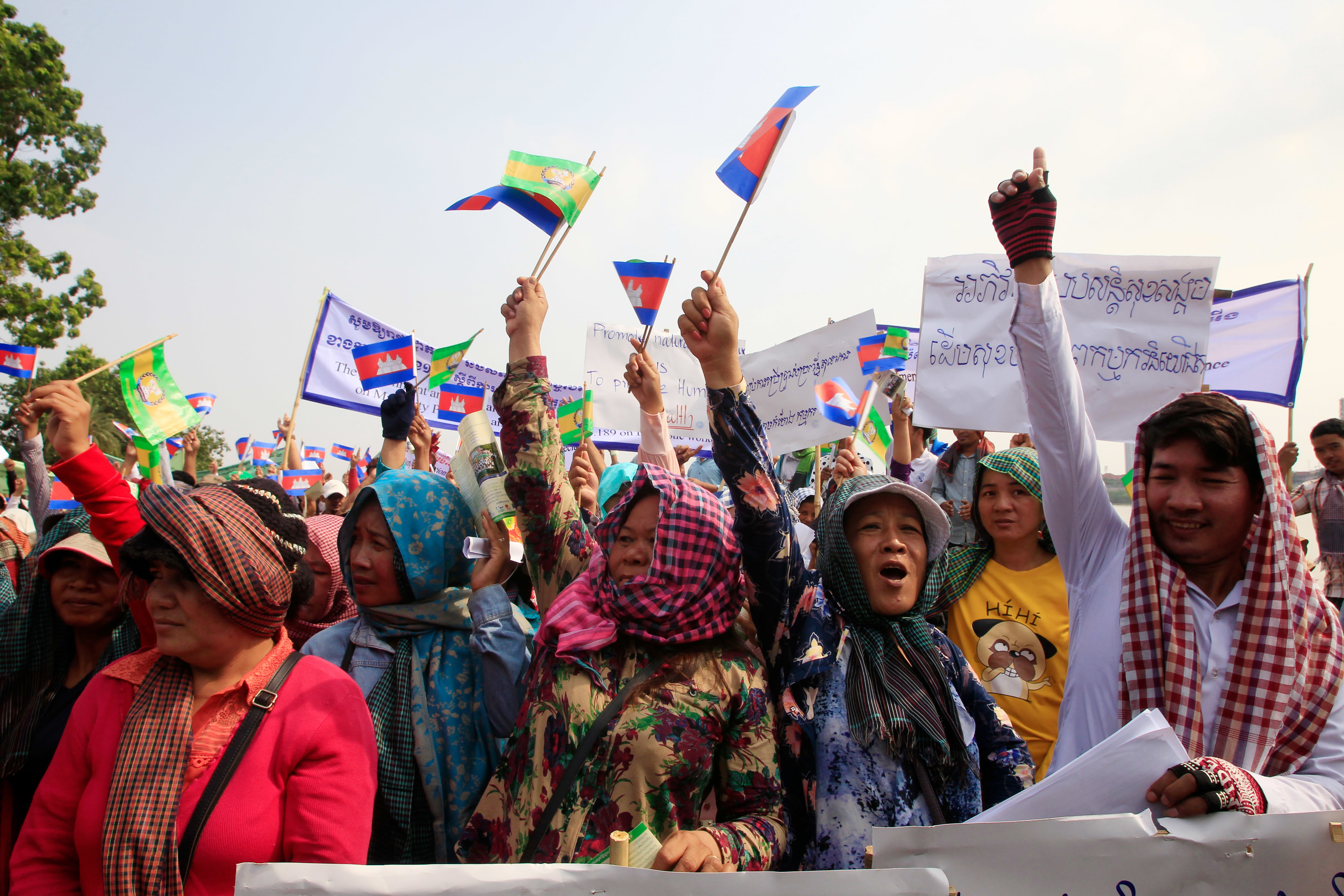
About 2,000 garment workers gathered at a park in Cambodia’s capital, Phnom Penh, for a rally organised by a garment union coalition.
The workers wanted to march to the National Assembly to urge politicians to help them address labour-related concerns, but the group was stopped by riot police.
Prime Minister Hun Sun spent May Day with some 5,000 garment workers just outside Phnom Penh. He thanked the workers by announcing that each of them will receive 50,000 riel (£9.18). With a general election coming up in July, Mr Hun Sen has for the past year been courting the large bloc of garment workers, whose unions have traditionally been strong supporters of the opposition.
Sri Lanka
Sri Lanka’s government has postponed the rallies and processions that mark May Day because the week-long celebrations of the national festival of Vesak carry on until May 2 this year.
The government said in a statement that the decision was taken following requests by leading Buddhist monks, who are very influential in the majority Buddhist country. Vesak is also known as Buddha Purnima and marks the enlightenment of Lord Buddha.
The government has asked political parties and trade unions not to hold rallies on May 1. Some have said they will ignore the government directive and mark the day.
Usually, Sri Lankan political parties and trade unions celebrate International Workers’ Day with colourful parades and giant rallies to showcase their political and organisational strength.
The government said it will mark International Workers’ Day on May 7.
Greece

Thousands of Greeks marched through central Athens in at least three separate May Day demonstrations.
Museums were also shut while ferries remain were tied up in port and public transport operated on a reduced schedule in strikes marking labour day.
Police said at least 7,000 people were at the first demonstration in Athens, which was organised by a communist party-led union. The protesters marched by parliament and headed up a major avenue to the United States Embassy.
Another four demonstrations were planned in Greece’s second largest city of Thessaloniki in the north.
Spain

More than 70 cities across Spain have held May Day marches calling for gender equality, higher salaries and pensions now that the country’s economy is back on track.
The demonstration in Madrid was among the biggest, with thousands rallying behind the slogan “Time to win”.
CCOO union official Unai Sordo says that “a social majority is emerging from the psychosis of the (global financial) crisis” in 2008 that hit Spain hard.
Pepe Alvarez, the secretary general of UGT – the other main union in Spain, said that meeting the demands of feminists, youths and pensioners are necessary to “redistribute wealth” in the country.
Spain’s economy, the fourth-largest in the 19-country eurozone, has in recent years posted some of the fastest economic growth in Europe. Last year, it reached 3.1%.
Germany and Austria

Tens of thousands of workers marched across Germany and Austria rallying for their rights in the face of globalisation.
In Vienna, some 12,000 people gathered in front of city hall, some carrying banners with slogans against planned welfare cuts by the new government.
Meanwhile, around 4,000 union supporters marched on different routes through Berlin, before assembling at the German capital’s landmark Brandenburg Gate.

“We have more rich and even richer people than we ever had before,” said protester Aimo Tuegel in Berlin. “And, on the other hand, work and working conditions for workers continuing to get worse.”
In Nuremberg, where the German Confederation of Trade Unions, or DGB, held its main event this year, some 6,500 protesters cheered as the group’s leader, Reiner Hoffmann, said the unions “managed to civilise industrial capitalism some 100 years ago” and would also be able to tackle contemporary challenges like digitalisation.
The DGB said that altogether some 340,000 people participated in almost 500 May Day events across Germany.


Comments: Our rules
We want our comments to be a lively and valuable part of our community - a place where readers can debate and engage with the most important local issues. The ability to comment on our stories is a privilege, not a right, however, and that privilege may be withdrawn if it is abused or misused.
Please report any comments that break our rules.
Read the rules here